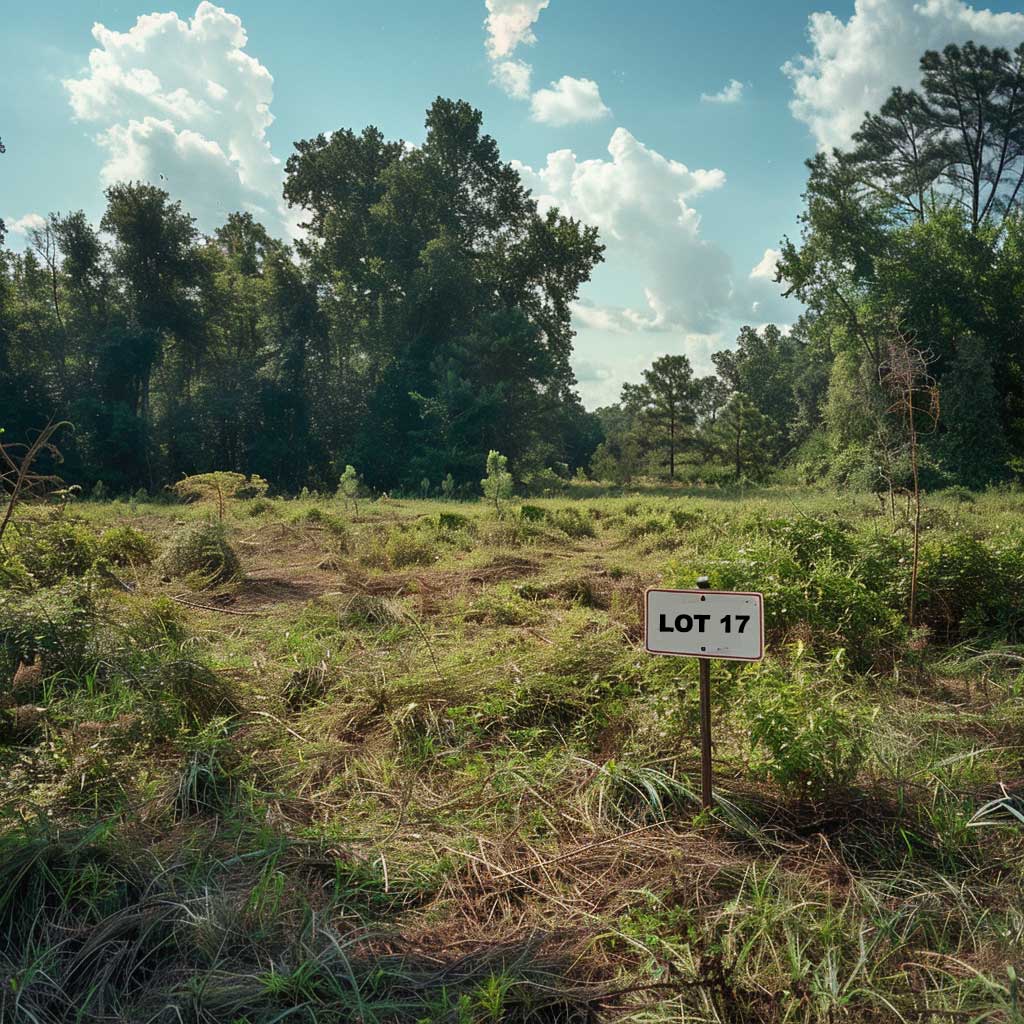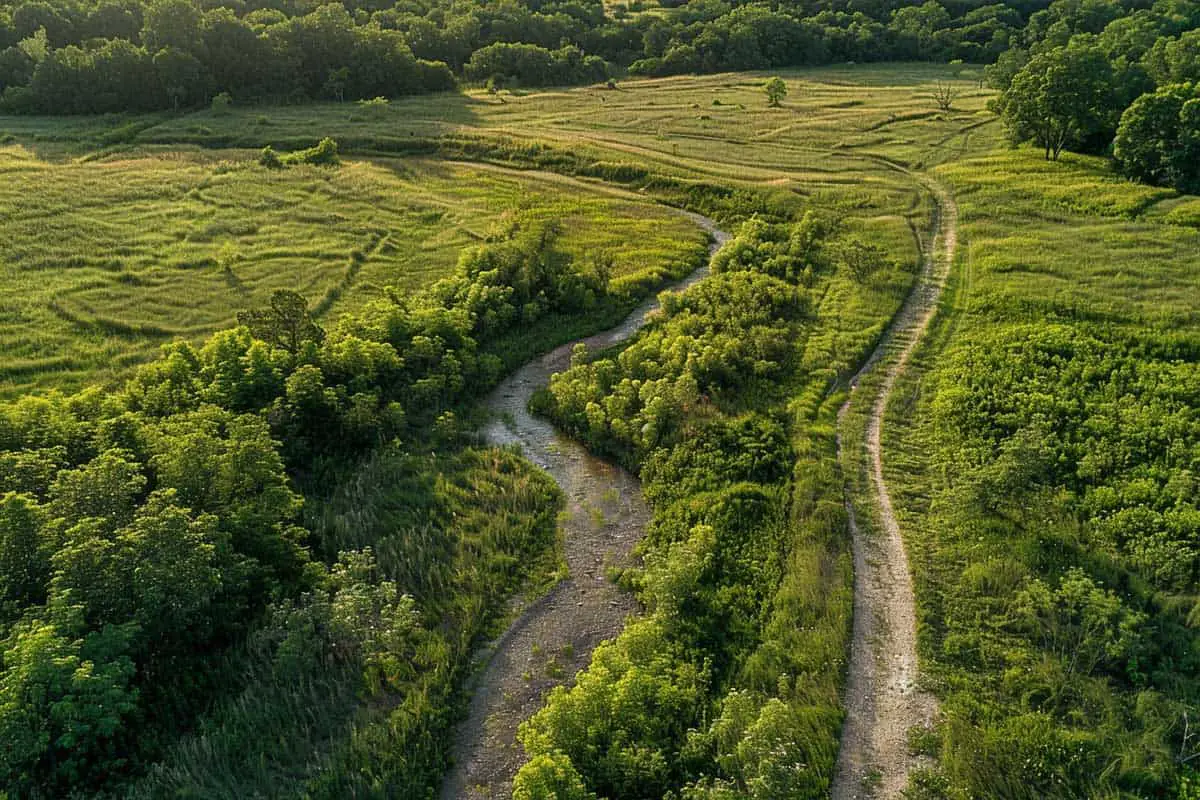This page may contain affiliate links. If you click and buy, we might get a small commission at no cost to you.
Whether you’re dreaming of building a house, setting up an RV haven, creating a nature retreat, or even using the land for hunting, it’s crucial to start with a clear plan and solid knowledge. This article will give you some vital tips to help you on your journey to owning your first piece of raw land.
1. Determine the What and Why
Before you begin your land search, it’s essential to determine your purpose for the land. Are you planning to build a home, use it for recreational activities, or perhaps create a nature retreat? Knowing your intended use will help you narrow down your options for locations to make informed decisions.
Things to consider:
- Where you are looking (search radius)
- Long-term vision for the land
- Compatibility with intended use
- Future development possibilities
Having a clear vision will guide your search and help you communicate your needs to real estate agents or sellers. It will also influence other factors such as location, size, and the type of land you should consider.
2. Set a Budget
Setting a realistic budget is a crucial step in the land-buying process. This budget should not only include the purchase price but also additional costs such as surveys, permits, and utility installations. Consider consulting with financial advisors to ensure you have accounted for all potential expenses.
Things to consider:
- Purchase price
- Additional costs (surveys, permits)
- Financial cushion for unexpected expenses
- Don’t spend more than you can afford
It’s wise to leave some room in your budget for unexpected costs. Unexpected issues such as land grading, soil testing, or legal fees can arise, and having a financial cushion will help you manage these surprises without derailing your plans.
3. Research Locations
Choosing the right location for your land is vital. Factors to consider include proximity to amenities, climate, and local zoning laws. Researching these aspects can save you from future inconveniences and ensure that the land suits your needs.
Things to consider:
- Proximity to amenities (schools, shops)
- Climate and weather patterns
- Local zoning laws and restrictions
Visiting potential locations in person is highly recommended. This allows you to get a feel for the area, check the accessibility, and envision how the land can meet your needs. Online research is helpful, but nothing beats an on-site visit.

4. Check Zoning and Land Use Regulations
Understanding local zoning laws and land use regulations is critical before purchasing land. These laws dictate what you can and cannot do with your land, affecting your plans significantly. For instance, some areas may have restrictions on building structures, while others may have specific rules for agricultural use.
Things to consider:
- Local zoning laws
- Land use regulations
- Restrictions on building or development
Consulting with local zoning offices or a real estate attorney can provide clarity and prevent future legal issues. Knowing these regulations upfront can save you time, money, and frustration down the road.
5. Assess Land Accessibility
Good access to your property is essential for both convenience and future development. Check for existing roads, driveways, and the overall ease of reaching your land. Properties in remote areas may present challenges that could require additional investment in infrastructure.
Things to consider:
- Existing roads and driveways
- Ease of access
- Potential costs for creating access
- Easements
For hard-to-reach properties, consider the costs and logistics of creating access routes. This could involve negotiating with neighboring landowners or dealing with local government regulations regarding road building and maintenance.

6. Evaluate Utilities and Infrastructure
The availability of utilities and infrastructure can greatly impact your land’s usability and value. Assess whether essential services like water, electricity, and sewage systems are available or if you will need to invest in alternatives.
Things to consider:
- Availability of water, electricity, sewage
- Costs for utility installation
- Alternative solutions for off-grid living
For those considering off-grid living, research alternative solutions such as solar power, well water, and septic systems. Understanding these aspects beforehand ensures that you are prepared for the necessary installations and can plan your budget accordingly.
7. Conduct Due Diligence
Thorough research and inspection are paramount before making a land purchase. Key aspects to investigate include soil quality, flood zones, and property boundaries. These factors can affect the usability and value of the land.
Things to consider:
- Soil quality
- Flood zones
- Property boundaries
- Get a survey done
- Walk the property and inspect it
- Title inspection
- Check for property liens of any type
Hiring professionals for land surveys, environmental assessments, and legal advice can provide peace of mind and ensure that you are making an informed decision. Due diligence helps you avoid unpleasant surprises and protects your investment.
Buying and simply holding raw land can be a wise investment in itself. By following these tips, you’ll be well-prepared to find and purchase the perfect piece of land that meets your needs and aspirations. Enjoy the journey of land ownership and the endless possibilities it brings.



